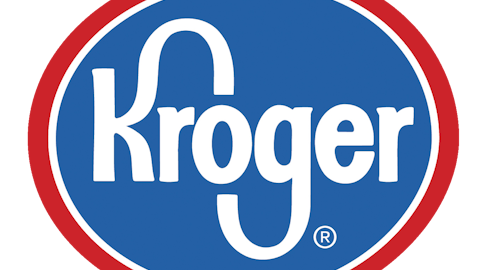When evaluating a business, most investors concentrate on margins, ROE, ROIC, free cash flow, and a host of other metrics. While important, those measures of performance do not always reveal the true value-creating mechanism for a company.
Asset turnover is one metric that is often vital to a company’s performance but rarely scrutinized by investors.

Can a Grocery Store Be a Better Business than a Railroad?
Grocery stores are notorious for having razor-thin margins. When you combine loss leaders with products that cannot be marked up more than a few pennies, you will always have a small window of profitability.
On the other hand, railroads typically have much higher margins than grocery stores. In fact, most railroads consistently earn double-digit operating margins, whereas grocery stores invariably earn low-single-digit margins.
Many investors would take this information and determine that it’s better to be in the railroad business than the grocery store business, but it’s not that simple.
Although railroads earn higher margins, their assets are not as productive as those of grocery stores. In other words, grocery stores make more sales per dollar of assets than railroads — much more.
Sales per dollar of assets is referred to as asset turnover. If you multiply asset turnover by profit margin, you get return on assets.
Over the last decade, Village Super Market, Inc. (NASDAQ:VLGEA) had an average EBIT margin of just 3.06%. However, it turned over its assets 3.7x each year. 3.7 times 3.06% = a pre-tax, pre-interest return on assets of 11.42%. This is the same as saying that for every $1 in assets, Village Super Market earned $0.11 before interest and taxes.
Meanwhile, Kansas City Southern (NYSE:KSU) had an average EBIT margin of 12.08% and an asset turnover of 0.31x. 0.31 times 12.08% = 3.83% pre-tax, pre-interest return on assets.

So, while Kansas City Southern earns a much higher margin on its products and services, Village Super Market, Inc. (NASDAQ:VLGEA)’s superior asset turnover leads to a better unlevered return on the capital required to operate the business.
ROA x Financial Leverage = ROE
“Unlevered” is the key word in describing Village Super Market, Inc. (NASDAQ:VLGEA)’s superior return. Village Super Market is a better business than Kansas City Southern (NYSE:KSU), but that does not mean it earns a higher return for equity holders. To demonstrate the effect of financial leverage on shareholder value, let’s look at one of Village Super Market’s competitors.
The Kroger Co. (NYSE:KR) has some of the best growth prospects in the industry due to its stable competitive position. Even with that said, Kroger’s profit margin and asset turnover are not good enough to beat Village Super Market, Inc. (NASDAQ:VLGEA). Over the last 10 years, Kroger averaged an EBIT margin of 3.1% vs 3.8% for Village and an asset turnover of 1.99x vs 3.06x for Village. 3.1% times 1.99 = 6.2% pre-tax, pre-interest ROA vs 11.42% for Village.
However, The Kroger Co. (NYSE:KR) routinely earns a much higher return on equity than Village due to financial leverage. Village is underleveraged — meaning it could take on more debt without unreasonably increasing the company’s risk.
Final Thoughts
Village Super Market, Inc. (NASDAQ:VLGEA) is a better business than both Kansas City Southern (NYSE:KSU) and The Kroger Co. (NYSE:KR). It earns more money for each dollar of assets in the business than the other two companies. However, Kroger and Kansas City Southern are doing more to maximize shareholder value by leveraging their assets with debt. As a result, Kroger earns a higher ROE than Village and Kansas City Southern earns a higher ROE than it otherwise would have.
Nevertheless, Village’s superior asset turnover over an extended period of time proves that it is a better business than the other two companies. If you strip away the financial leverage, you would always buy Village holding all else equal. Village’s lower debt load also affords investors more protection during a downturn — The Kroger Co. (NYSE:KR) did not fare nearly as well as Village during the recent recession.
Asset turnover is not the be-all end-all metric to look at. But it does offer insights into the relative superiority of one business over another — a valuable tool for investors looking to scoop up quality at a bargain price.
The article One Metric Makes This Company Special originally appeared on Fool.com and is written by Ted Cooper.
Copyright © 1995 – 2013 The Motley Fool, LLC. All rights reserved. The Motley Fool has a disclosure policy.



